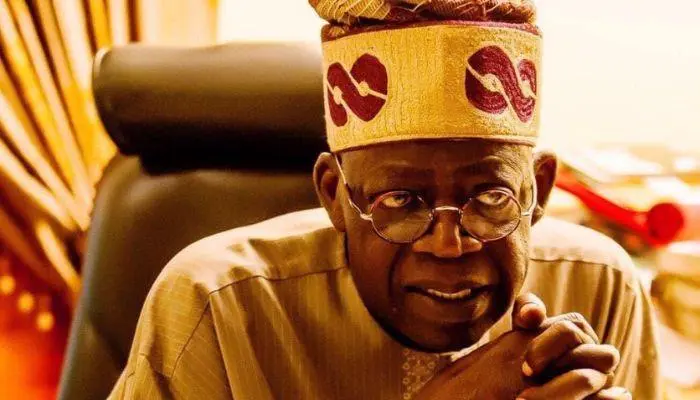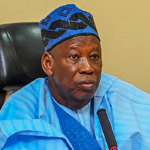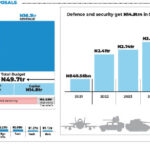On Tuesday last week, President Bola Ahmed Tinubu clocked the first 100 days in office, a day that has become a traditional milestone for the first-impression evaluation of new presidents and governors in Nigeria.
its rather subdued press statement released on the day and appropriately titled ‘President Tinubu’s 100 Days of Steady Progress and National Rejuvenation’, the federal government sought to burnish President Tinubu’s credentials as a “bold”, “courageous” and purposeful leader who is making the hard but necessary choices to address the most difficult challenges we face, and doing so by appreciating and carrying the whole country along. The past 100 days may be difficult, Nigerians are told, but the efforts made so far and those to come will ultimately result in better days and years ahead for all.
At Daily Trust, we are not much convinced by the government’s self-presentation of its scorecard so far. We recognize that 100 days are not enough to have a last word on anyone’s administration. Yet, for millions of Nigerians, the past three months are those of renewed suffering as the cost-of-living crisis spiraled out of government control, and prices of food and other basic items rose beyond the reach of many households.
Rather than relief, the government has in fact multiplied the suffering of Nigerians by the very policy reforms it would have us welcome and celebrate. On one of these policies, the administration said in its press statement that “President Tinubu took a bold and courageous decision to remove the fuel subsidy to avert a national economic catastrophe of epic proportions. Fuel subsidy was a Sword of Damocles that hung over Nigeria for decades. It stunted growth and set the country a-borrowing”.
- NIGERIA DAILY: How Traditional Rulers Can Curb Influx Of Bandits In North East
- Residents desert community as police launch manhunt for Rivers DPO’s killers
But “economic catastrophe of epic proportions” is precisely what many Nigerians have known in their daily lives since May 29th when the government, without adequate plans, announced the removal of fuel subsidy on its very first day. Confident that it had succeeded where others had failed, the president doubled down on subsidy removal by announcing the unification of multiple exchange markets.
No doubt, bold and painful reforms were needed in these and other thorny sectors of our economy, as the hitherto prevailing situation had become unsustainable. Still, the cataclysmic effects of these two policies—fuel subsidy withdrawal and unification of multiple exchange rates for the naira—could have been foreseen, calculated and mitigated in a way that will make the reforms themselves sustainable within the current political-economic climate.
Courage is valuable in political leadership. But it must be applied to the right thing, at the right time, and in the right manner. The government can score itself highly on the first two, but it has failed on the third. The shambles called palliatives make this point all too evident, as do the usually unforeseen consequences of such wide-ranging policies. As Bloomberg reported late last month, fuel consumption has dropped by nearly a third, effectively threatening the small and micro businesses in the informal sector that provide incomes and livelihoods to over 65% of Nigerian households.
Thus, without “structural palliatives” such as mass transit schemes and a serious look at salaries and wages for all workers, the government can expect a significant drop in productivity and ultimately in the gross domestic product by the end of the year. This is not to mention the seven million Nigerians the World Bank predicts would be pushed deeper into poverty on current trends.
Yet, President Tinubu’s characteristic ‘act first, think later’ approach has also been demonstrated in his foreign policy. No sooner had a junta seized power in neighbouring Niger Republic than the president, at the head of the regional bloc ECOWAS, issued a seven-day ultimatum; effectively beating the drums of war against a sovereign next-door neighbour. It would take a sustained national uproar and a determined readiness for war from the junta and its autocratic supporters for Tinubu and ECOWAS to rediscover the name of the game – diplomacy.
Also, the new government appears too narrow-mindedly focused on the economy, to the probable neglect of other issues. Four executive orders on taxation, a yet-to-be-clear student tuition financing policy, and a flurry of high-minded palliative initiatives have all been tabled, in addition to the ongoing reforms on fuel subsidy and currency exchange.
The public service, security, infrastructure development, education, health and peace-building among various Nigerian communities are also important areas crying out for attention. But the government has impliedly left them to the ministers in a cabinet that was formed only a few weeks ago.
What the ministers will do each in their respective portfolios remains to be seen. But as President Tinubu heads towards the next milestone of his administration in May next year, we urge him to learn to put the horse before the cart in his policy actions and to cast his reform-minded glance wider to other areas of the polity and society. A presidential term is both short and long.

 Join Daily Trust WhatsApp Community For Quick Access To News and Happenings Around You.
Join Daily Trust WhatsApp Community For Quick Access To News and Happenings Around You.


